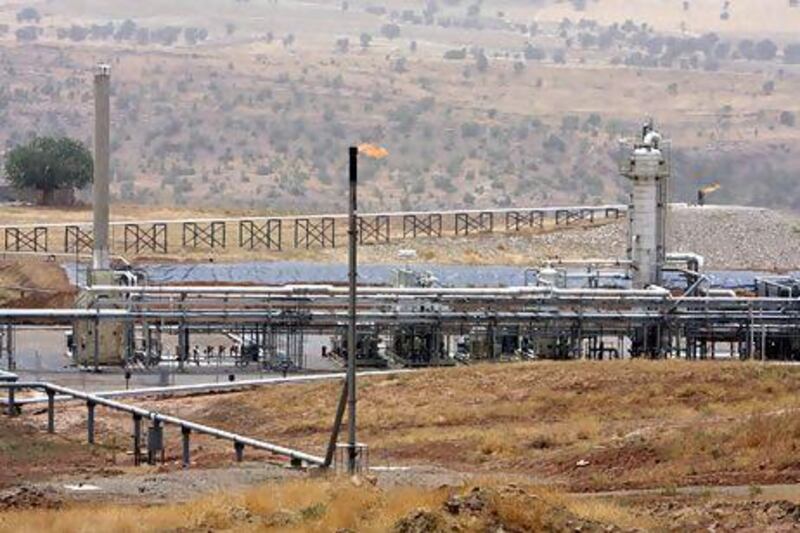DNO International may raise its production target at the Tawke field in the Kurdish region of Iraq after striking oil during test drilling.
The company also reported the discovery of additional reserves under the reservoir that is currently being tapped.
Within the layer that is already being exploited, a horizontal test well was able to extract 8,000 barrels per day (bpd) at four fractured corridors it penetrated, with six other corridors also accessed. A second horizontal test well has yet to find oil.
Bijan Mossavar-Rahmani, DNO's executive chairman, said that if a second well revealed the same potential as the first, the company would "go back to the drawing board and consider further enhancements to our current target of 200,000 barrels a day of production capacity by 2015".
Production at Tawke's Cretaceous reservoir reached 100,000 bpd last month.
A test well drilled 200 metres below the Cretaceous layer of the Earth into the Sargelu formation also struck oil, lifting 1,500 bpd. The find would likely increase recoverable reserves to more than one billion barrels, said Mr Mossavar-Rahmani, up from the previous estimate of about 770 million barrels.
DNO holds a 55 per cent stake in the Tawke concession. Genel Energy, the Turkish oil and gas outfit headed by the former BP chief Tony Hayward, has a 25 per cent stake in the field, with the Kurdish Regional Government (KRG) holding the remainder.
The Norwegian company was one of the first to drill for oil in Iraq after the overthrow of Saddam Hussein.
Tawke has become DNO's most significant asset after it signed a production sharing agreement (PSA) with the KRG in 2004.
But the company, whose merger with the UAE's RAK Petroleum was completed in 2011, has had its finances suffer from the political dispute over oil rights between the KRG and the central government in Baghdad.
Angered by the PSAs that Erbil has signed with a string of international oil companies, Baghdad has withheld the bulk of the payments these companies are owed. The dispute has repeatedly led to a stop to exports from the autonomous region. In the first quarter of this year, DNO's profits almost halved to Dh107m after its share of production at Tawke declined by more than a quarter, as exports have once again come to a halt.
The oil-rights stand-off will only be resolved with the introduction of a national oil and gas law, a process that has stalled and is unlikely to be completed soon.
The KRG will not have to rely on Iraqi export infrastructure for much longer, however, with a pipeline to the Turkish border to be completed in the coming weeks. With the link to Turkey, the Kurds will be able to independently generate revenue from their oil, and allow them to pay producers for their output.





